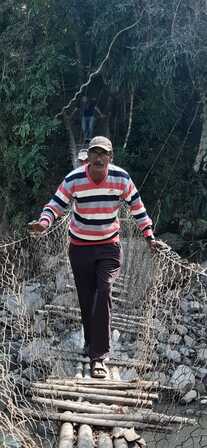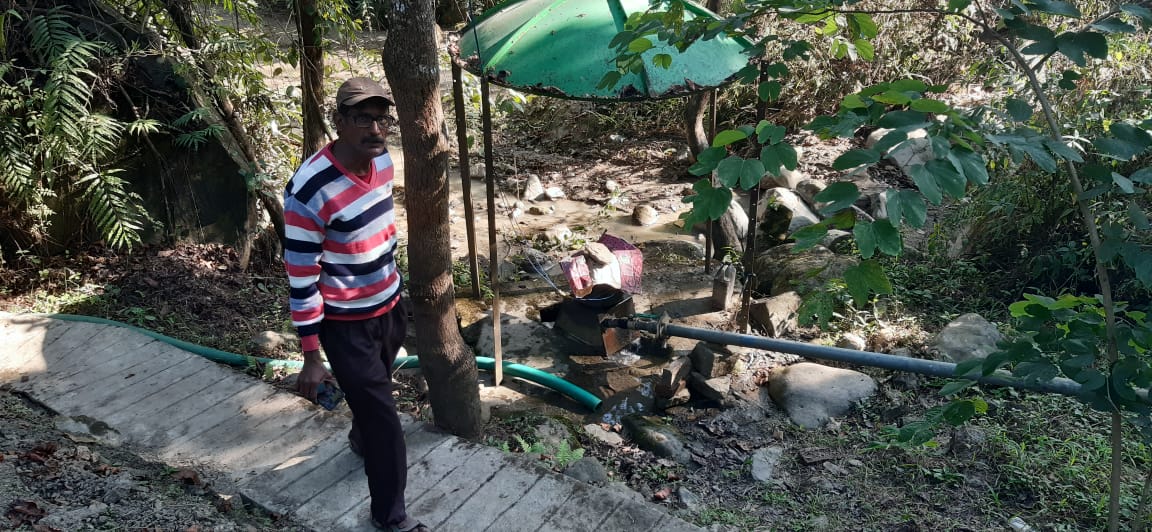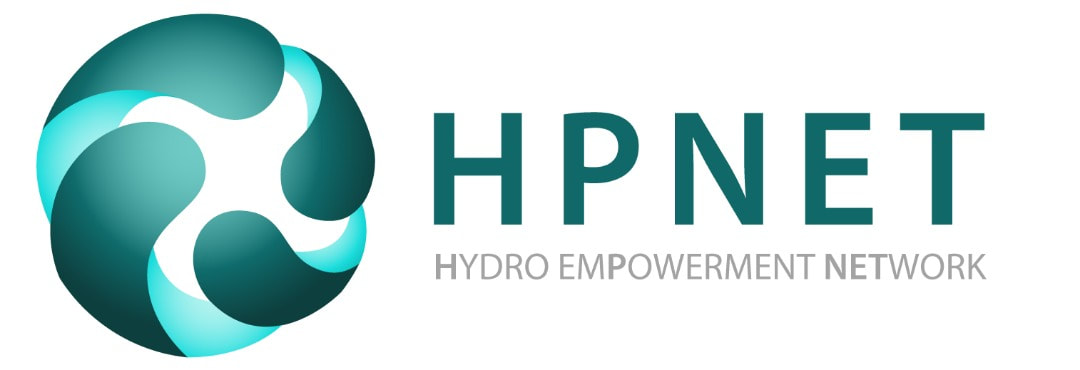 Rams in route to NEPeD site. Credit: NEPeD
Rams in route to NEPeD site. Credit: NEPeD Earlier this month in Nagaland with support from WISIONS, HPNET organized a knowledge exchange visit for Ramasubramanian Vaidhyanathan, the Board of Representative Member for India also known as "Rams", to share his micro hydro expertise with practitioners at Nagaland Empowerment of People through Energy Development (NEPeD).
NEPeD has a well established approach and direction to do sustainable micro hydro projects. Moreover, due to NEPeD's work doing in-house manufacturing at their CERES facility, it is well positioned to support local practitioners and advance the sector throughout Northeast India. This visit aimed to support NEPeD in building on its considerable achievements
Through decades of work on micro hydropower initiatives in Eastern Ghats of India and elsewhere globally, Rams has earned the title of "micro hydro guru" within the network. He supports training, design and manufacturing of Pelton, crossflow, and pump-as-turbines, along with system-wide implementation aspects.
The exchange visit endeavoured to synergize NEPeD's committed efforts to Rams' several decades of expertise, in order to advance sustainable micro hydro sector in northeast India. More specifically, the purpose of the visit was to:
- Assess casting facilities and raw material availability;
- Assess the fabrication workshop and team at Centre for Excellence for Renewable Energy Studies (CERES);
- Assess what other turbines could be fabricated with the present infrastructure
- Visit one or two sites to assess the implementation issues, ownership model, revenue generation, etc.
Rams gave a positive assessment of the casting facilities and availability of raw material. He has reported back that the CERES has a well equipped fabrication workshop with CNC operated lathe and milling machines, an arc welding machine, angle grinder and cutting machine. Casting fabrication is outsourced to the neighbouring institution, the Nagaland Tool and Training Centre. The aluminum castings for the runner buckets and the PMG cores are sourced from Guwahati foundries.
As for his assessment of the CERES fabrication workshop and team, Rams shared that the workshop is well positioned to fabricate turbines of up to 50 kW, and that the team is highly motivated and experienced in the installation of turbines. Moreover, in addition to the fabrication centre, there is a test rig available to test turbines, ram pumps and electric load controllers (ELCs).
Rams found that with the existing infrastructure, Pelton turbines and cross-flow turbines can easily be fabricated at CERES up to a capacity of 50 kW. He advised that larger units can be taken up once the team gets hands-on experience on the 50 kW scale.
In addition, communities supported by NEPeD do horticulture that can have significantly greater local economic benefits with electricity-based processing. Enabling this requires the NEPeD pico hydro systems to be upgraded to micro hydro capacities that can generate enough electricity for horticulture livelihoods. HPNET's facilitation of multi-stakeholders to move forward in this direction is a part of our initiative Social Enterprise for Energy, Ecological and Economic Development (SEEED).
Based on the outcomes of the visit, we foresee NEPeD upscaling its capacities as well as playing an important role as a regional practitioner advancing the micro hydro sector in northeast India.

